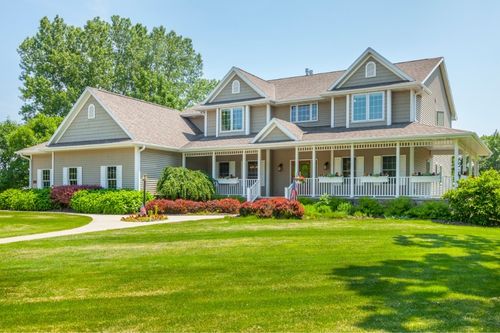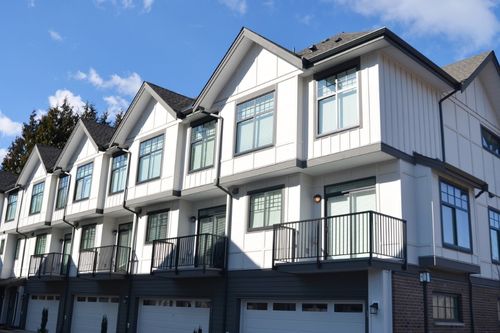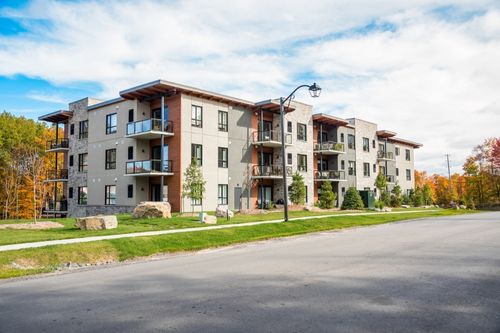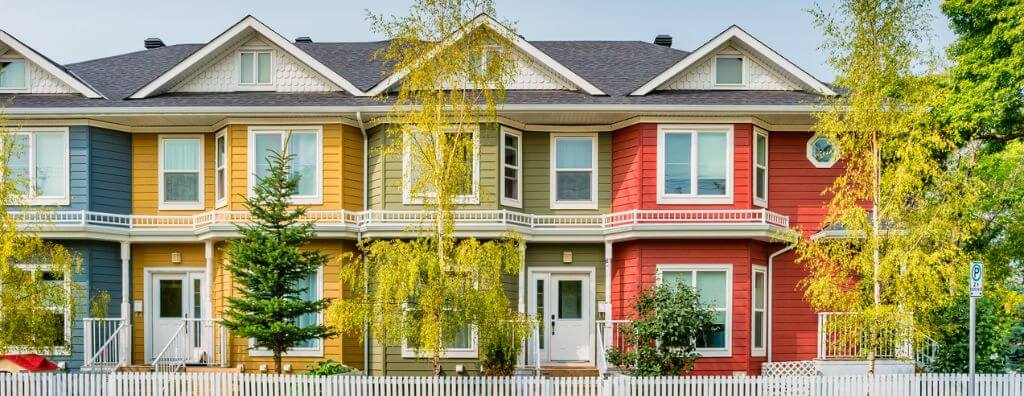Deciding between a house, townhouse, and condominium can be a difficult process. Understanding how the characteristics of each housing type aligns with your life goals and finances will help you work with your agent to identify which housing type is right for you.
How do you define a house?
Of the three housing options, detached single-family houses offer the most freedom and privacy, but they’re also typically more expensive than a condo or townhouse. They provide the opportunity to personalize your home and make renovations as desired, barring local zoning laws. Houses don’t share walls like townhouses and condos, and typically offer private outdoor spaces. Situated on their own lots, owning a house puts the responsibility of maintaining and improving the structure and accompanying land in the homeowner’s hands.

Example of a single-family detached house. Image Source: Getty Images – Image Credit: JamesBrey
What’s the difference between a townhouse and a condo?
Owners of townhouses can personalize and renovate their homes (within reason) since they bear the responsibility of the home’s exterior, outdoor areas, and yard. Having said that, changes to the home’s exterior and/or additions are not permitted. Here’s the tradeoff with condominiums: although you typically have less control over things like renovations and exterior spaces, they usually require less maintenance.
Townhouse: A townhouse building is a narrow, multileveled structure, usually with a small parcel of property in front of or behind the home. Whereas row houses share a common façade along a street, townhouses may be grouped throughout a development and may not share a consistent roofline with the other units. Somewhere between a house and a condominium, townhouses may offer the best of both worlds for some homeowners.
Like a house, townhouse owners are responsible for exterior (roof and siding) maintenance and repair. Most townhouses tend to have a small footprint and modern upgrades, and may have lower Homeowners Association (HOA) fees than condominiums due to a lesser focus on shared amenities.
Condominium: Condominiums are divided, individually owned units of a larger, unified structure. Due to their smaller size and lack of land ownership, condominiums can often be less expensive than a townhouse or a house. However, HOA fees on top of a monthly mortgage payment can increase the cost of condominium living, depending on the amenities offered in a building. A unique characteristic of condominiums is that the exterior of the units is considered a common area, with ownership shared amongst the building’s residents.
Unlike townhouses, as a condominium owner, you’re only responsible for the inside of your unit. Residents live in close proximity and typically share amenities like gym and pool access, laundry, and other facilities.

Example of townhouses. Image Source: Getty Images – Image Credit: AnthonyRosenberg

Example of a condominium complex. Image Source: Getty Images – Image Credit: AlbertPego
Regardless of what your specific transaction looks like, saving for homeownership costs requires planning. Knowing your budget will help you work closely with your agent to find the right home. To get an idea of what’s affordable, use our free Home Monthly Payment Calculator by clicking the button below. With current rates based on national averages and customizable mortgage terms, you can get estimates of your monthly payment for any listing price.
How does your home align with your life?
House: For homeowners looking at their property as an investment in their financial future, houses are a strong choice. Houses allow homeowners to plan long-term with the knowledge that their home will build equity over time. If you are planning on putting down roots and starting a family, houses provide the best opportunity to grow into your future and are better suited for significant life changes.
Townhouse: Townhouses present a great steppingstone in the homeownership spectrum. Often located in residential neighborhoods, they are a fitting choice for those looking to graduate from rented dwellings. They’re also a great option for those wanting to downsize from a single-family home. With a townhouse, you’ll share the walls with your neighbors on either side, but not above and below. Townhouses fit into the category of “missing middle” housing types because they are considered dense housing, but fit nicely in neighborhoods with detached single-family houses.
Condominium: Condominiums appeal to homeowners looking for a low-maintenance residence, with access to shared amenities amongst a community. Condos are usually found in denser areas closer to downtown centers, shopping, and entertainment. Typically found in metropolitan environments, they are a great housing option for buyers looking to be located close to city centers and cut down on commute times to downtown areas.
After all the research, do what feels right. Whether it’s a house, townhouse, or a condo, work with your agent to find the best option for you and your future.

